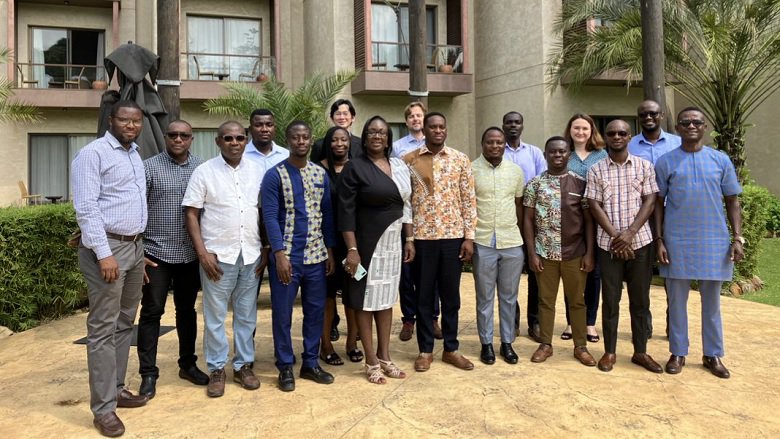Natural capital plays a significant role in Ghana’s socio-economic development. However, detailed data available to the Government of Ghana (GoG) on the contribution and value of its natural capital is limited. As a result, natural assets (such as land and forests) and the flows they support (ecosystem services such as water flow regulation, prevention of soil degradation, and climate regulation, among others) are undervalued in economic planning and decision-making processes.
The NCA program in Ghana is focused on building technical capacity through a learning-by-doing approach, and the development of accounts and policy analysis tools. This means, providing technical guidance to the relevant sub-working groups to develop the accounts. It is expected that the accounts will provide key quantitative and qualitative information to better inform policy decisions at all levels, including, for example, the implementation of projects such as the Ghana Landscape Restoration and Small-Scale Mining Project, financed by the World Bank. The accounts will provide information on land cover changes and also changes in the ecosystem services provided by the project landscapes – helping better target restoration interventions to deliver maximum benefits.
The main objective of this workshop was to “start construction of the tables for the accounts and build the capacity of the respective technical specialists through this hands-on learning approach”, Neeta Hooda, Snr. Natural Resources Management Specialist at the World Bank and Task Team Leader said.
As a build-up to earlier engagements and pieces of training organized in June 2022, the workshop is expected to enhance institutional knowledge on ecosystem services accounting to compile land and ecosystem accounts and their linkages to national accounts. Workshop participants will therefore have enhanced capacity to compile land and ecosystem accounts.
Kwame Fredua, Principal Programme Officer with the Environmental Protection Agency (EPA) and Ghana NCA Team Leader indicated that “the workshop was a useful platform to strengthen institutional collaboration, build confidence, and deepen the dedication and commitment to NCA in the interest of the nation”.
The workshop also provided a means for participants to deliberate on the dynamics of natural capital accounting including data collection, analysis and policy use of the information generated. Participants were also able to share and interrogate real-time information, learn from the process and arrive at key conclusions.
Bram Edens, Snr Statistician with UNSD said, “Ghana is ready for the next exciting phase, which should culminate in the release of the land and extent accounts during a planned national forum in 2023”. He explained that the workshop resulted in a list of follow-up actions with specific timelines. The focus of the next phase will be to finalize the land cover maps for 2015, 2019 and 2021 as they serve as the foundation on which the ecosystem extent and ecosystem services accounts will be built.
Yakubu Mohammed, Head of the GIS Mapping Unit of the Forestry Commission, Kumasi in the Ashanti Region of Ghana, a key participant also shared his experience and learning. He said that the cross-fertilization of ideas at the workshop was necessary for building participant capacity in the interest of the nation and expressed his gratitude to the World Bank and the UNSD for their support. This will ensure that in-country technical persons will eventually be able to independently compile the accounts and mainstream them in their everyday work. This indeed is serving a national and a global purpose”.
As part of the next steps for the accounts, Neeta Hooda disclosed that the team will “focus on finalization of the land and ecosystem extent accounts by April 2023, to launch them at the planned Ghana NCA Forum in May 2023 and subsequently aim at September 2023 to firm up the ecosystem services accounts. Data produced in the accounts would help inform the decision and policy making processes”, she said.


